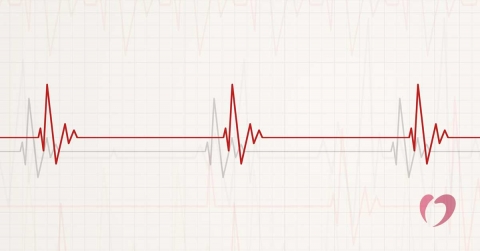Understanding Bradycardia

Bradycardia is the term used for an abnormally slow heart rhythm. While normal heart rate can vary a bit from one person to the next, generally healthy hearts beat between 60 and 100 beats per minute when at rest. A resting heart rate of less than 60 BPM could indicate bradycardia. For some people, specifically athletes and those who are physically active, lower resting heart rates are still considered normal. Exercise improves the efficiency of the heart, which allows more blood flow in fewer beats per minute. But when the heart is pumping too slowly because of bradycardia, there is less blood flow, which can deprive the brain and other organs of oxygen.
What are the symptoms and causes?
Since bradycardia deprives the body of oxygen, symptoms you may notice include chest pain, fatigue, weakness, dizziness or lightheadedness, confusion, and fainting or near fainting spells. Shortness of breath and difficulty when exercising can be indicators of a slow heart rhythm as well. Other problems resulting from untreated bradycardia include heart failure, high blood pressure, or low blood pressure. In extreme cases, bradycardia can lead to sudden cardiac arrest.
There are many things that can cause bradycardia. Your Oklahoma Heart Hospital physician will run some tests to determine the cause of your bradycardia, as the specific cause will determine the best treatment.
Some cases of bradycardia are caused by congenital problems, or a heart problem that has existed since birth. Others are caused by problems with the sinoatrial node in the heart’s electrical system or an issue with the conduction pathways that help regulate the heartbeat. Metabolic problems such as hypothyroidism, certain medications, or damage from heart disease or heart attack can also cause bradycardia.
How is bradycardia treated?
As with many heart rhythm problems, the severity and the cause of bradycardia determines the treatment approach. In some cases, the abnormally slow heart rhythm may be so slight and not causing any problems that your doctor will choose to monitor the heart rather than treat it. If the cause includes medication or a condition that is treated by medication, treatment will likely include adjusting the medication to restore normal heartbeat. In many cases, doctors recommend a pacemaker to regulate heartbeat. Pacemakers send electric signals to the heart to tell it when to beat. They work only when needed, and some models can even adjust during exercise.
If you think you are having symptoms of bradycardia, contact Oklahoma Heart Hospital today to make an appointment with one of our heart rhythm specialists.




